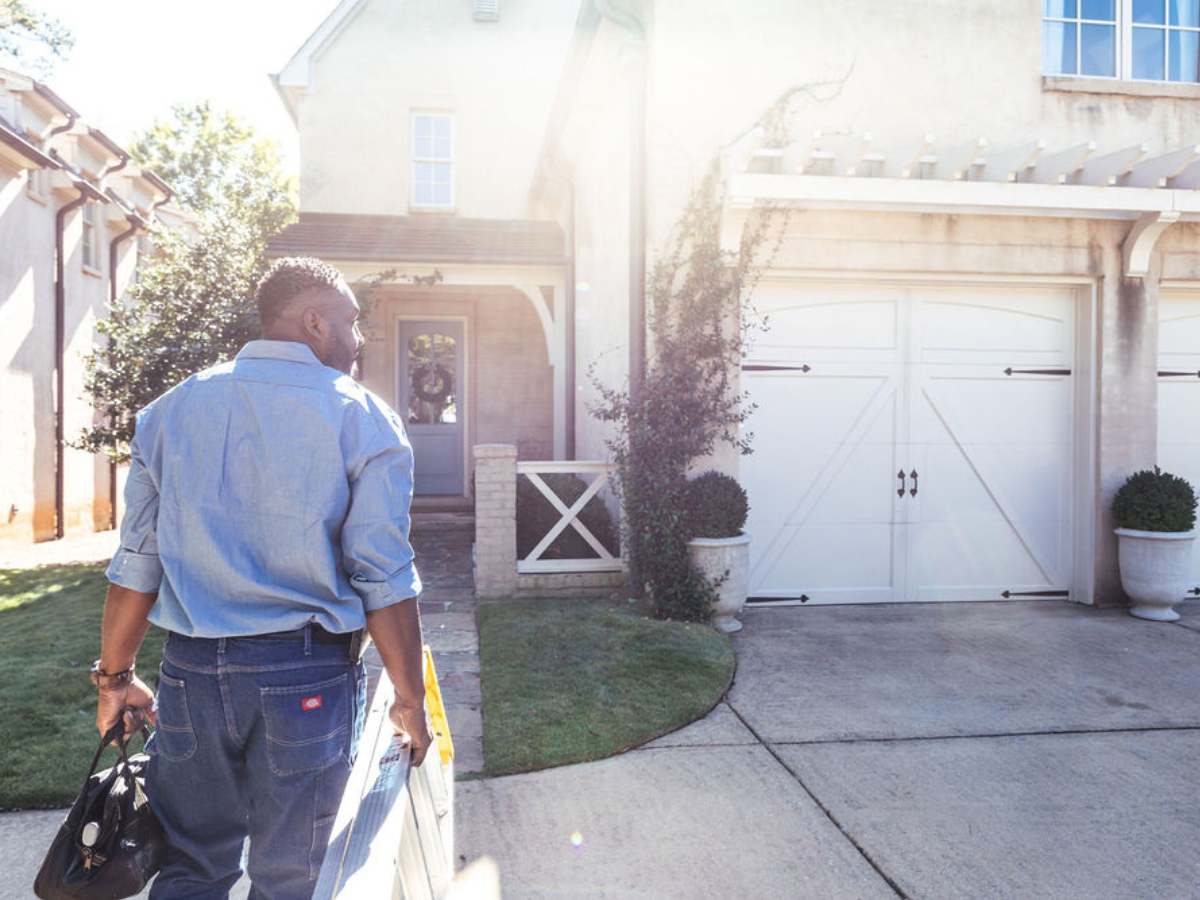Landlords in Chattanooga, like in any other city, often have concerns about potential property damage due to delayed or inadequate maintenance. This fear is not unfounded, as neglecting property maintenance can have severe consequences both in the short and long term. In this article, we will explore the importance of timely and effective maintenance, the consequences of neglecting it, and strategies for implementing a solid maintenance plan.
Introduction
As a landlord, it is crucial to address the fear of property damage resulting from delayed or inadequate maintenance. Timely and effective maintenance not only ensures the integrity and value of the property but also safeguards the safety and well-being of the tenants. Neglecting maintenance can lead to increased costs, severe property damage, and safety hazards. It can also have long-term effects such as depreciation of property value and increased expenses. To avoid these problems, it is essential to prioritize routine maintenance.
Section 1: The Consequences of Neglecting Property Maintenance
Immediate Impacts
When maintenance issues are ignored, the immediate impacts can be significant. Minor problems, if left unattended, can quickly escalate into major issues. For example, a small leak in the plumbing can lead to water damage, mold growth, and structural damage. Delayed repairs can also create safety hazards, putting tenants at risk of accidents or injuries.
Additionally, neglecting maintenance can result in increased costs. What may have been a minor repair can turn into a costly replacement if left unresolved. For example, a damaged roof that is not promptly repaired can lead to extensive water damage and the need for a complete roof replacement.
Long-Term Effects
The consequences of inadequate maintenance extend beyond immediate impacts. Over time, neglecting property maintenance can lead to a decrease in property value. Potential tenants are more likely to be attracted to well-maintained properties, and appraisers consider the condition of a property when determining its value. Thus, failing to address maintenance needs can result in a depreciated property that struggles to compete in the rental market.
Furthermore, neglecting maintenance can lead to increased long-term expenses. What may have been a minor repair could evolve into a major problem that requires extensive and costly repairs. Regular maintenance, on the other hand, allows for timely identification and resolution of issues, preventing them from escalating into larger and more expensive problems.
Section 2: Importance of Routine Maintenance
To address the fear of property damage, implementing a routine maintenance plan is key. Here are some reasons why routine maintenance is vital:
Preventive Measures
Routine maintenance helps prevent significant damage to the property. By regularly inspecting and addressing potential issues, landlords can proactively intervene before problems worsen. This includes maintaining the structural components of the property, such as the roofing, HVAC systems, and plumbing, to ensure their longevity.
For example, regular inspections of the roof can help identify loose shingles or damaged areas, which can be repaired before they cause leaks and extensive water damage. Similarly, regular HVAC maintenance can enhance system efficiency, reduce energy consumption, and prevent breakdowns.
Cost Benefits
Routine maintenance is more cost-effective than neglecting it and dealing with major repairs down the line. By investing in preventive measures and addressing minor issues promptly, landlords can save on significant expenses in the long run. The cost of routine maintenance pales in comparison to the financial burden resulting from neglect.
For instance, regular inspection and maintenance of the property's plumbing can identify and fix minor leaks before they cause water damage or mold growth, avoiding costly repairs and remediation efforts. Taking care of the property proactively also improves tenant satisfaction, reducing turnover and the related costs of finding new tenants.
Section 3: Strategies for Effective Maintenance Management
Regular Inspections
Regular inspections are essential for effective maintenance management. Landlords should establish a schedule for conducting inspections and thoroughly check various aspects of the property, including the exterior, interior, electrical systems, plumbing, and more. Inspections allow for the identification of potential maintenance needs before they develop into larger problems.
During inspections, landlords should pay close attention to signs of wear and tear, such as peeling paint, cracks, leaks, or unusual sounds. These indicators can signal underlying issues that require attention. By addressing them promptly, landlords can prevent further damage and minimize repair costs.
Maintenance Checklist
Having a comprehensive maintenance checklist is crucial for staying organized and ensuring that all necessary tasks are completed. The checklist should cover seasonal maintenance activities, such as gutter cleaning, HVAC filter replacement, and lawn care.
Creating a seasonal maintenance schedule can help landlords distribute tasks evenly throughout the year. By breaking down maintenance activities into smaller, manageable portions, it becomes less overwhelming. Regularly referring to the checklist ensures that no critical maintenance tasks are overlooked.
Section 4: Dealing with Unexpected Property Damage
Immediate Response Plan
Even with a solid maintenance plan in place, unexpected property damage can still occur. Landlords need to have an immediate response plan to mitigate the damage and prevent it from worsening.
The steps for a swift response include assessing the damage, containing it, and taking necessary measures to minimize further harm. For instance, in the event of a water leak, shutting off the water supply and calling a professional plumber should be top priorities.
Professional Assistance
Sometimes, unexpected property damage requires the expertise of professionals. Landlords should have a reliable network of contractors, including plumbers, electricians, and general handypersons, that they can call upon when needed. Having access to skilled professionals ensures that repairs are carried out effectively and in a timely manner.
Building relationships with competent contractors allows for quick response times and minimizes the risk of hiring unreliable or unqualified individuals. Professional assistance is particularly crucial in situations where specialized skills or tools are necessary to address the property damage effectively.
Section 5: Implementing a Maintenance Plan
Setting Up a Maintenance Schedule
Developing an effective maintenance schedule is essential for maintaining property integrity. The schedule should cover all critical areas of the property, including routine inspections and recurring maintenance tasks.
When creating the maintenance schedule, consider the specific needs of your property and the recommended maintenance intervals for various components. Regularly revisiting and adjusting the schedule ensures that it remains relevant and addresses any changing maintenance requirements.
Communication with Residents
Engaging residents in property maintenance is mutually beneficial. Landlords should communicate the importance of maintaining their living spaces and promptly reporting any issues they come across.
Establish open lines of communication with tenants, making it easy for them to report maintenance needs. Encourage them to be proactive in taking care of their rented spaces, such as reminding them to regularly change HVAC filters or informing them of routine inspections.
Section 6: Technological Tools for Maintenance Management
Maintenance Management Software
Technological advancements offer landlords various software options designed to streamline maintenance management. Maintenance management software allows for efficient tracking of maintenance tasks, scheduling repairs, and documenting expenses.
These tools provide a centralized platform for managing maintenance requests, tracking progress, and communicating with contractors. They also allow for better organization and record-keeping, making it easier to access maintenance histories and follow up on completed tasks.
Benefits of Technology Integration
The integration of technology into maintenance management offers numerous benefits. It streamlines processes, reduces the likelihood of errors, and saves time for landlords and tenants alike.
For example, digital maintenance request systems simplify the reporting and tracking of maintenance issues, eliminating the need for time-consuming phone calls or written communications. Technology also enables landlords to automate reminders for routine maintenance tasks, reducing the chances of crucial maintenance activities being overlooked.
Conclusion
Addressing the fear of property damage due to delayed or inadequate maintenance is crucial for landlords in Chattanooga. By implementing a solid maintenance strategy, landlords can minimize the risk of significant property damage, extend the lifespan of property components, and ensure the value and integrity of their investments. The consequences of neglecting maintenance can be severe, resulting in increased costs, decreased property value, and compromised tenant safety and satisfaction. By prioritizing routine maintenance, utilizing technology, and fostering open communication with residents, landlords can effectively address the fear of property damage and maintain their properties to the highest standards.
And don’t worry. If the above seems like all too much, you can always outsource maintenance and repairs to a professional property management company. Reach out to our local team today!


